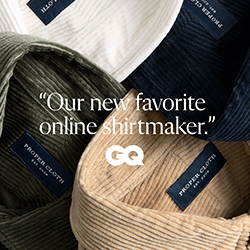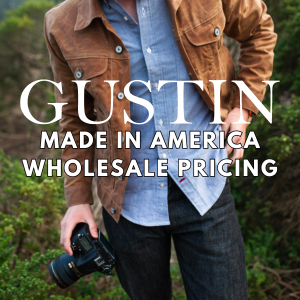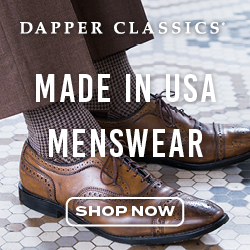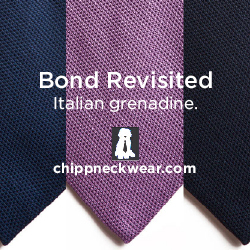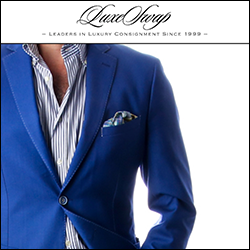A reader wrote to us today, in response to our editorial policy and an article on how “style bloggers” earn money with appearance fees, editorial placement fees and other payments from brands. Here’s what he said:
With regards to the ethics thing, I gotta say it is very clear when a style blog is educational (like yours) or commercial (like many others.) And when it’s commercial, it isn’t ‘unethical’ to do what you’re paid to do, especially if it’s relatively harmless. Those style bloggers aren’t that much different from these brand ambassadors, marketers, endorsing celebrities, etc. and the stuff they do isn’t entirely useless from an economic point of view.
First of all: this is a journalistic endeavor. Like almost all such efforts, it is also a commercial endeavor. We sell advertisements against our content. Our goal is to make money by making content that people find valuable. So let’s dispense with the idea that there are people in it for money and people in it to educate it who I guess are volunteers(?) or maybe paid out of some sort of government fund, like PBS(?).
Secondly: I’m glad you are of the opinion that you can tell what’s an ad and what isn’t. We all feel that way. But the truth is: if disclosure isn’t required, we can’t. We might be able to guess right sometimes, but ultimately you get to a kind of exhausted, “well, it’s all ads anyway” state, which poisons the well for everyone.
We get dozens of solicitations a month to write paid content on this blog. Paid reviews, paid mentions in rundowns, paid links. Brands straight-up ask us how much an editorial mention costs. They wouldn’t be doing this if others weren’t taking the money. Because many brands have been conditioned to assume that bloggers will take their money to trick their audience, they don’t want to buy an honest advertisement of the sort we run. The kind that separates editorial from advertising, as journalists have done for a hundred years.
You say that “style bloggers aren’t that much different from these brand ambassadors, marketers, endorsing celebrities, etc,” and you’re right. I guess where we differ is that that fact bums me out, big-time. Frankly, while I don’t read any brand blogs or other pseudo-editorial, I don’t care that much if companies run their own media, as long as they disclose. The problem comes when they don’t.
Look: our operation isn’t perfect. We work very hard to separate editorial from advertising, but we can’t afford a full-time business person, so while we sell ads with a standard rate card, they’re administered by us. And we sell pocket squares, too. But we try to be consistent and transparent, we always disclose our relationships such as they are, and I think our reputation is clean and well-earned.
And I don’t want to paint with a broad brush and say everyone is doing this, although too many are. There are plenty of folks working hard to respect their audience. And plenty of brands who aren’t engaging in shenanigans, and are instead supporting folks who are doing good work and connecting with audiences by being trustworthy.
If I were to ask something of my colleagues, it would be this: make a policy and post it. Whatever it is, write it down, look at it, and make sure that’s how you want to run your business and your life. You can refer to it in the future when you’re not sure or when temptation arises.
Here are a few that I found helpful, as a guy who didn’t go to j-school:
I’d also remind you that this isn’t just a matter of ethics, it’s also a matter of law. Cloaking marketing in the guise of editorial is illegal in the US, and you can read the FTC guidelines here.
In some ways, the fashion business is a game of mirrors. Some people are content to play it that way. I’m glad some people aren’t.
Filed Under: Ethics, Fashion, Journalism
